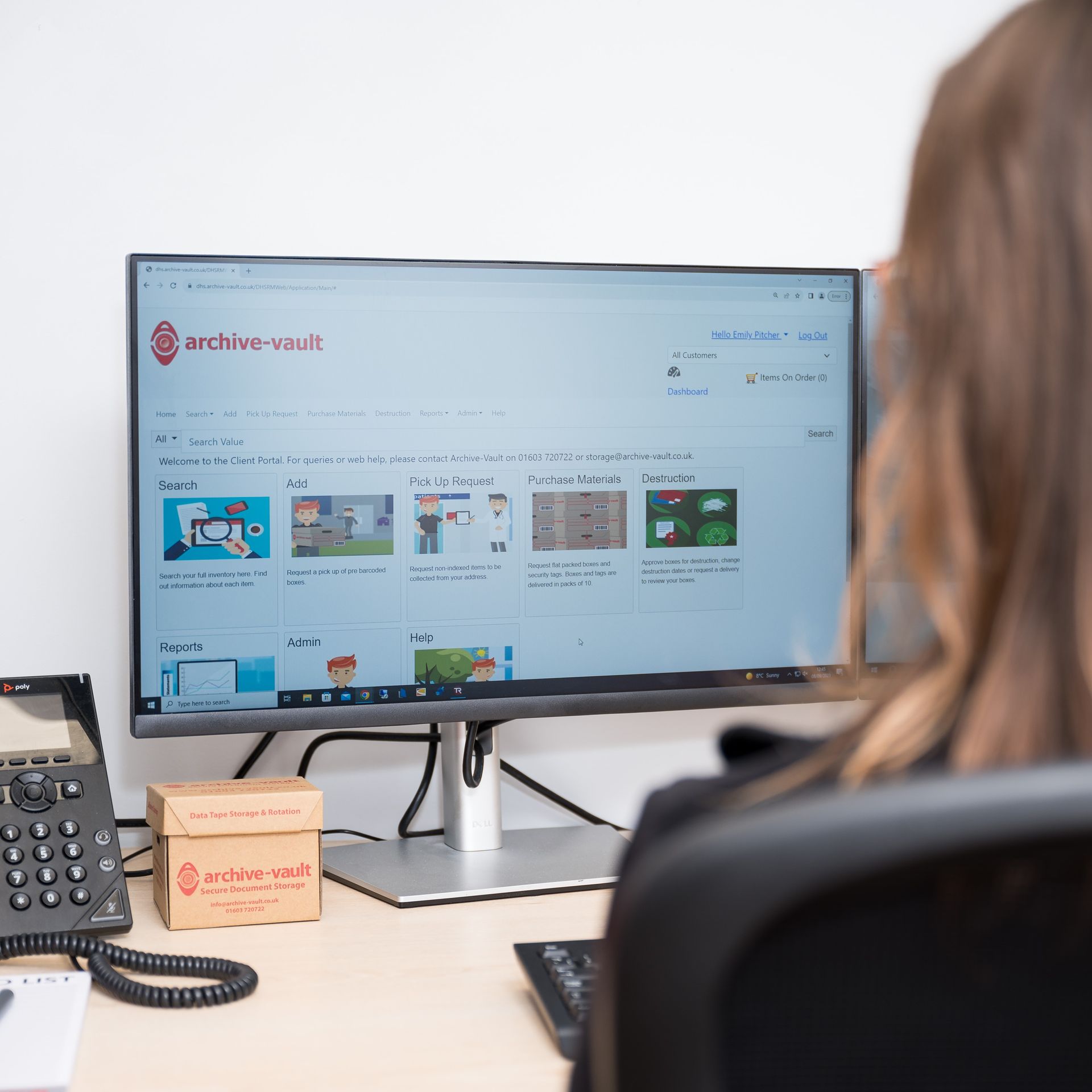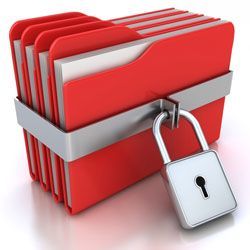Everything you need to know about back scanning
Would your business benefit from carrying out a back scanning project? Are you exploring the back scanning option as a step in the right direction to going ‘paper light’? This blog focuses on the who, what, when, why, where, and how of back scanning to help you make an informed decision.
At Archive-Vault, we keep a finger on the pulse when it comes to the scanning industry to bring our clients the latest innovations. Recently we’ve noticed a lot of talk about back scanning and particularly in the legal and medical sectors where there are huge quantities of documents to manage.
So, what is back scanning?
Back scanning refers to the scanning of a paper archive. You may have hard copy documents stored at your offices or off-site and possibly for some time. These could have a retention date you need to adhere to or perhaps you keep historic documents for your business to refer to occasionally. You can back scan these documents to convert them to digital files.
What are the benefits of back scanning?
Whether you do your back scanning in-house or outsource, there are real benefits to digitising your archived documents.
A huge positive to converting your paper archive to digital files is that your documents will be easily accessible whenever you need them. You don’t need to lay your hands on the hard copies, saving time to focus on other priorities. Efficient indexing will mean that you and your team can view the documents at the touch of a button. We offer Archive-Vault clients 24/7 access to their inventory via our secure online client portal.
If you scan then securely destroy your paper archive you will free up the physical storage space dedicated to these paper files. This could create additional rooms or areas that are more useful for your business. If your archived items are being stored with a professional company like Archive-Vault, this could eliminate storage costs. If you outsource your back scanning there will be a cost, but when compared to the cost of long-term storage this could represent a saving, and it will certainly save you time spent doing the job in-house.
If you use your own equipment for a back scanning project you may see a return on investment. However, you need to factor in any time staff will spend on the job and the cost of hiring temporary staff if needed.
Our purpose-built storage facility is flood and fire resistant giving our clients peace of mind that their paper documents are safe with us. Back scanning your paper documents will create back-ups. Should the worst case scenario happen and a disaster strikes your business will be protected. Back scanning is well worth the effort!
Where do you start with back scanning?
Back scanning documents can seem like an overwhelming task for a business. The prospect of it can feel like wading through treacle! You may wonder how you will ever get the job done. You will. But the hardest thing is knowing where to start.
The key is to develop a plan of action for your back scanning project. Prioritise so that you begin by scanning specific documents first and these may not be the oldest. If you still need to access some files you could start with those. Also consider how you want to index your digital documents so that they can be easily searched for and found by your team.
Your back scanning paperwork could be confidential. We understand that documents can contain sensitive information and carry out all our scanning services in line with Data Protection Regulations. Archive-Vault is registered with the Information Commissioner’s Office (ICO).
We can develop a back scanning strategy to help you manage your records with greater efficiency including suggestions for indexing your digital files. The Archive-Vault team will work closely with you to understand your needs and goals. Email info@archive-vault.co.uk to find out how we can help with your back scanning.
How to make your back scanning project a success
What steps can you take to make a back scanning project work for your business? Start by asking a few questions:
Where will you do the back scanning project?
Do you have enough space to accommodate the back scanning? Bear in mind you will need a significant amount of room to prepare the documents prior to scanning. Any obstacles such as paper clips and staples will need to be removed to ensure they don’t get stuck in the scanner. Some older documents may not be in perfect condition and will need to be handled carefully when scanning. At Archive-Vault we take the time to properly prepare your documents so that the back scanning runs smoothly.
Who is doing the back scanning?
Will this be a member of staff or a temporary worker. When you’ve looked at the costs and the impact of taking staff away from their current duties, would outsourcing work better for you?
What equipment do you plan to use?
If you are planning to do the job in-house, do you have the right equipment? You may well have a scanner that’s perfect for back scanning. However, before you start it’s best to carry out a few pre-checks to ensure your equipment can cope with the demands of the project.
If you are using a scanner on top of the photocopier, is it fit for purpose? Check how often your machine needs to run maintenance checks to keep it performing at capacity. If this happens often, it could disrupt the flow of the scanning and it will take longer to complete. If anything goes wrong with the equipment, what is the turnaround time to get it fixed? If you are not working to a deadline, this may not be an issue, but it’s worth finding out before you start. It also really helps if the scanner can make the PDF searchable when digitised as this will lead to greater efficiency in your office. If you are sure the scanner has the right functionality and will create the quality you need, then you are ready to back scan your documents.
Are the documents that need to be back scanned on-site?
It may sound obvious, but you need to make sure the documents are in the right place - the back scanning area - when you need to scan them. This could involve transporting the documents from another office location or off-site storage. Do you have staff who can manage this? Do you have vehicles? At Archive-Vault we collect your paperwork, transport it in our secure vehicles and back scan it in our purpose-built facility. When the project is completed, we can return your digital documents on an encrypted hard drive, or upload them to your own online platform.
How will the documents be indexed?
How will you index your documents? Decide how the digital files will be saved. This will depend on what is being scanned and should be decided before the scanning starts to avoid any confusion. It’s crucial that staff across your business can find the digital files quickly and easily.
Are there any priorities?
What is being scanned first? Have you got the files to hand? Preparing the paper documents in advance in batches will make the job more efficient and save time.
How long will the back scanning take?
Do you have a deadline in mind? If you are doing the back scanning in-house, it could be done as and when you have time and staff available. Outsourcing your back scanning could mean you can get the project completed more quickly.
Can you destroy paper documents securely?
Disposing of any documents properly is best practice and must be done as part of The Data Protection Act that governs all businesses in the UK. Any paper files that are no longer required after back scanning need to be securely destroyed to ensure that data protection regulations are met.
At Archive-Vault, we protect your documents throughout their entire lifecycle, which includes secure destruction. We can guide you through your back scanning project to ensure that it works for your business.
Is back scanning right for your business?
We hope this blog has given you a greater understanding of back scanning. Perhaps you’ve almost made your decision. Here are three questions to help you decide if back scanning is right for your business.
1. Are your paper archive files easily accessible? Digitising and indexing your documents will help you and your colleagues search for and find them more quickly and easily.
2. Would your business benefit from more office space? Converting your documents to digital and securely destroying your paper archive could free up storage space and create additional room for your business.
3. Do you have back-up files? Back scanning your paper documents will ensure you have digital copies should you lose the originals through a natural disaster. Helping to protect your business.
If you are ready to go ahead with back scanning, Archive-Vault can help.
Outsource your back scanning to Archive-Vault
You can have confidence when you outsource your back scanning project to Archive-Vault. It will be done to a high standard, indexed to your exact specifications and any documents securely destroyed to comply with data protection regulations.
Our team can help you develop a back scanning strategy that works for your business. We scan documents for a wide range of sectors across East Anglia and beyond. Archive-Vault clients include accountants, construction companies, solicitors, NHS trusts and universities.
Join the other businesses and organisations that choose us to manage their back scanning. You can call us on 01603 720722 or email info@archive-vault.co.uk.

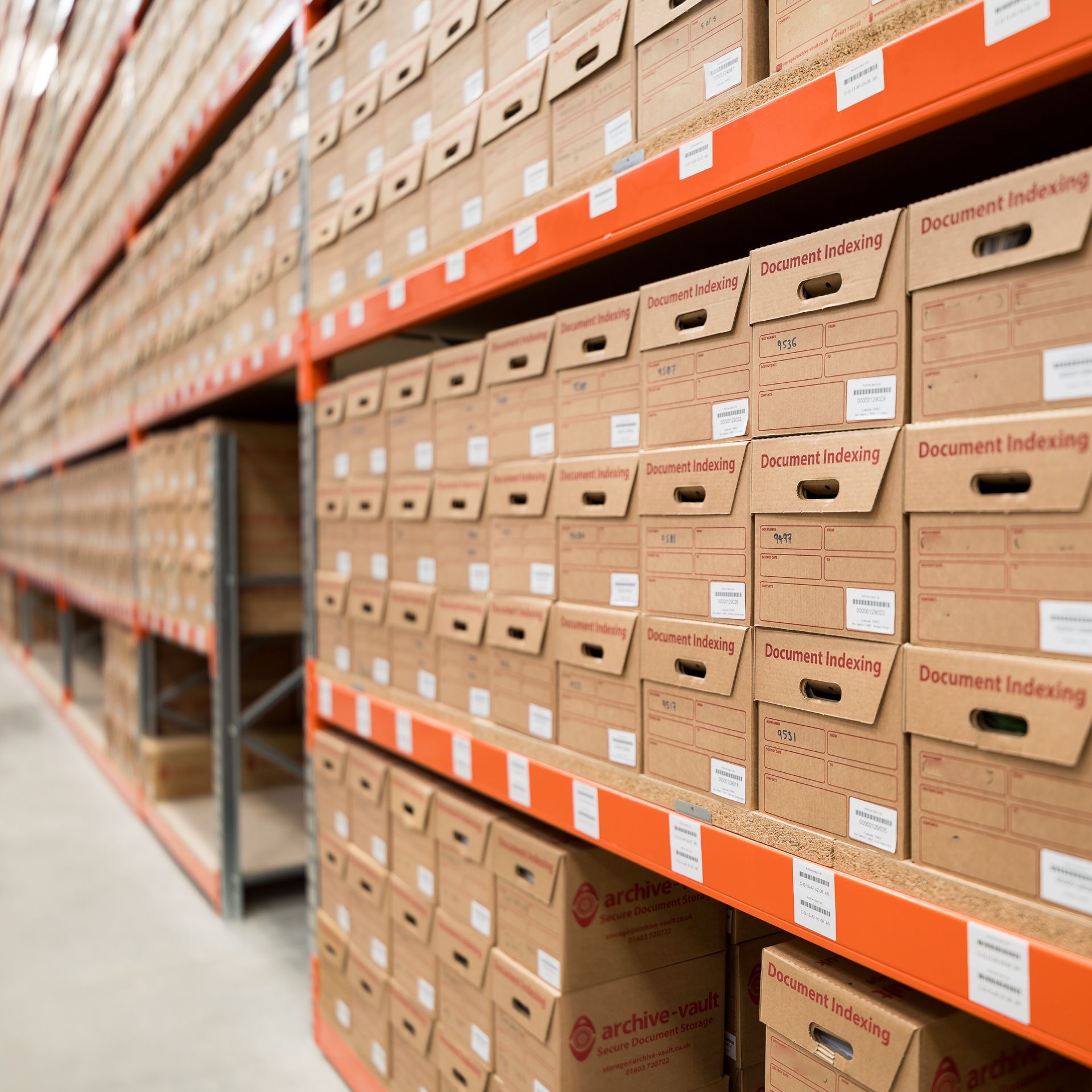

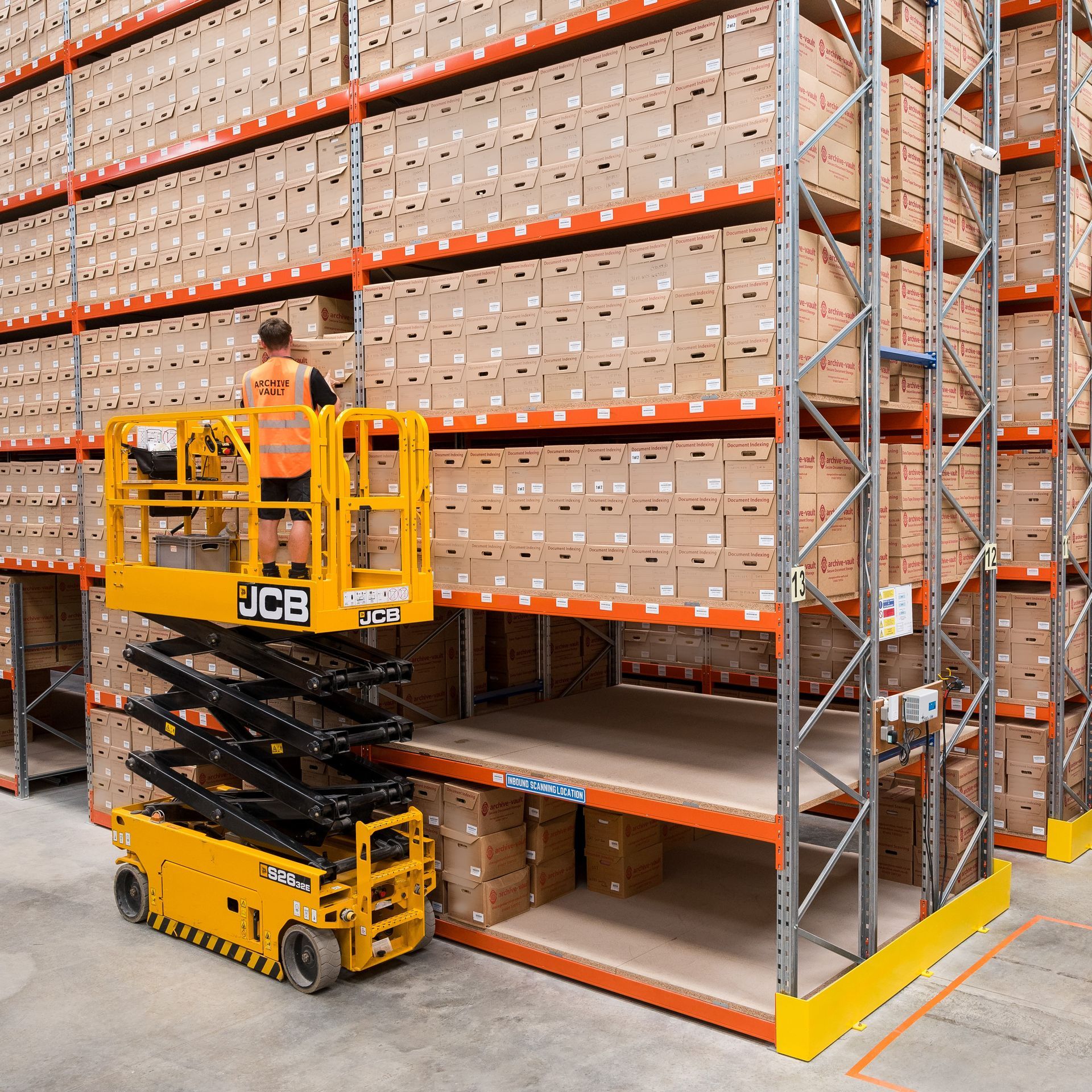
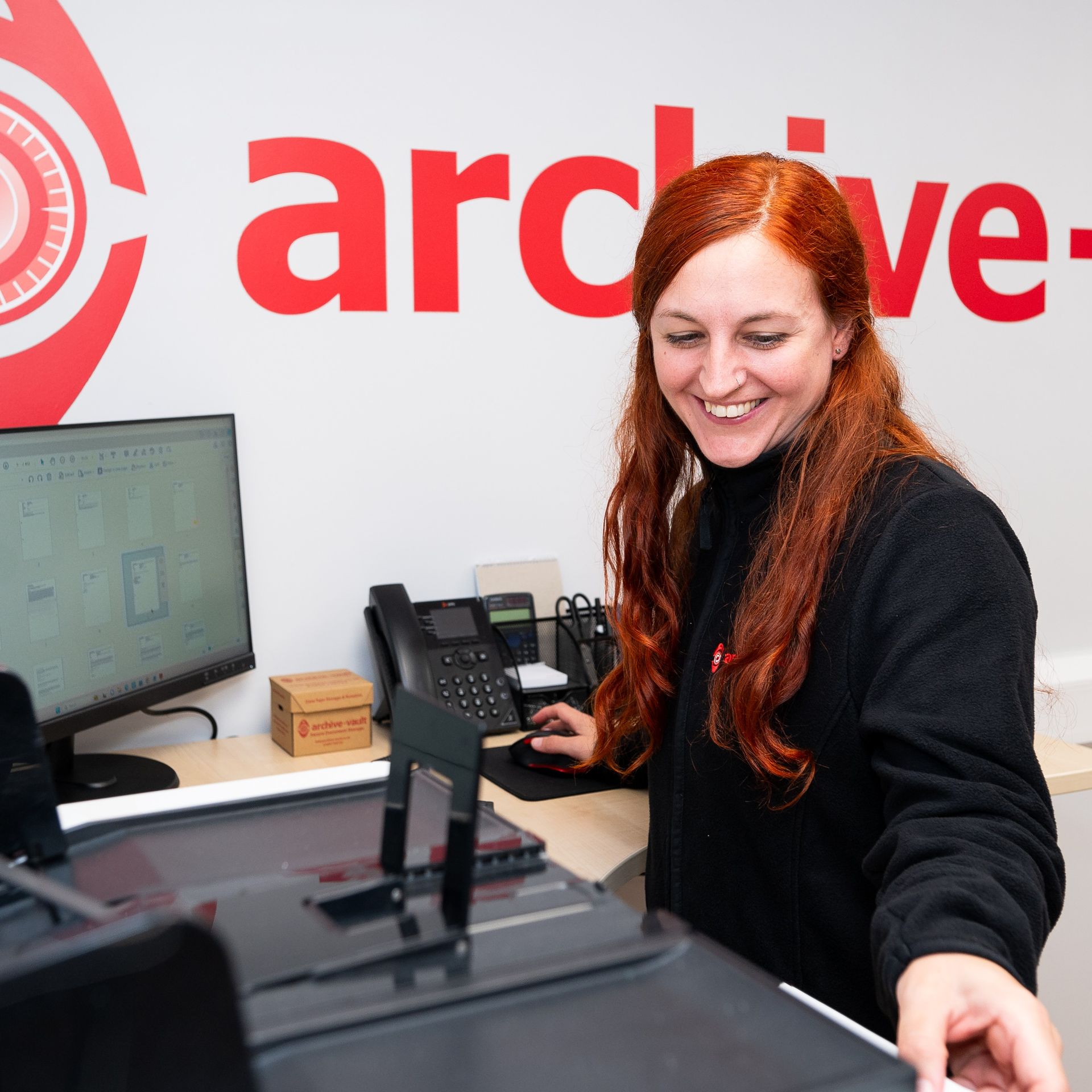
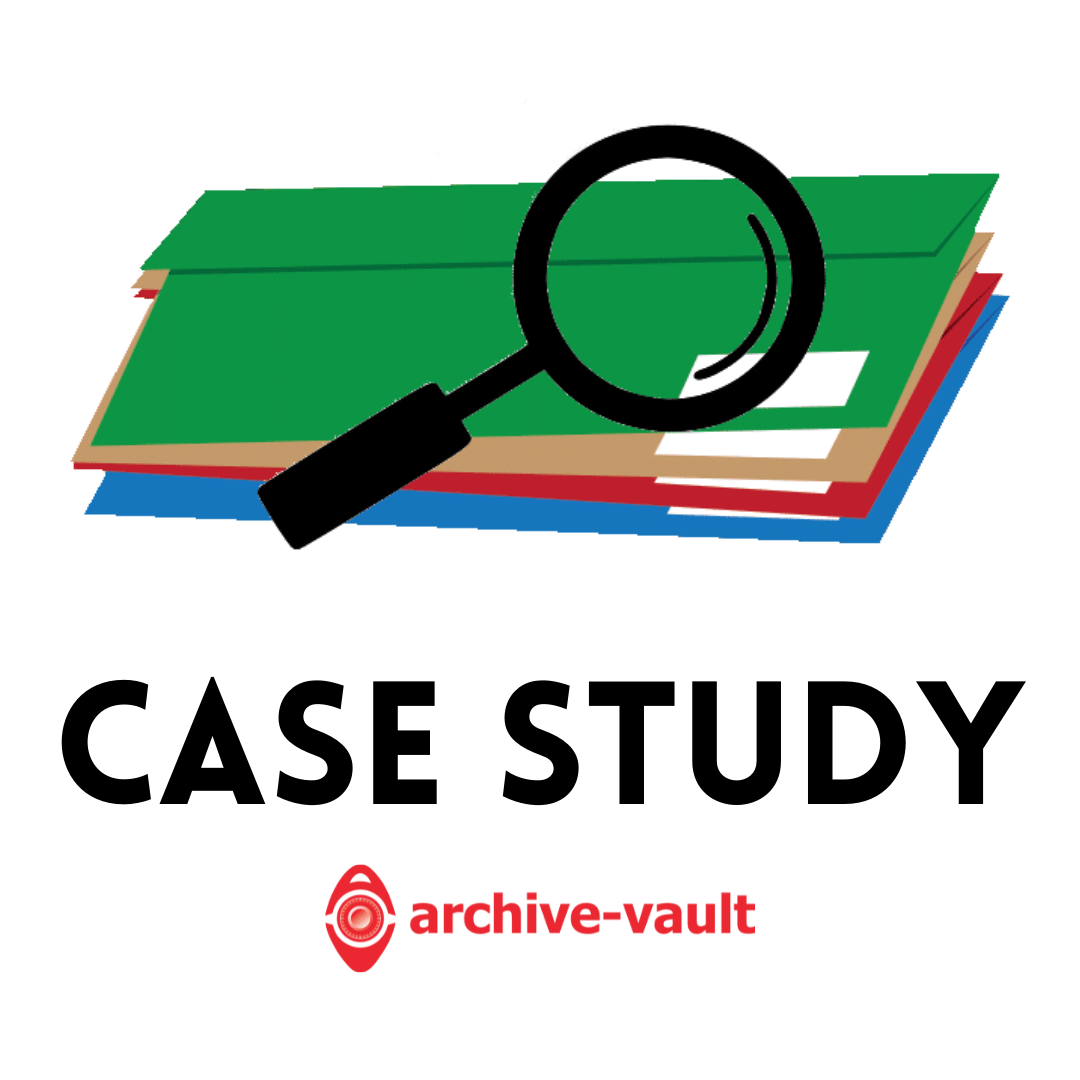
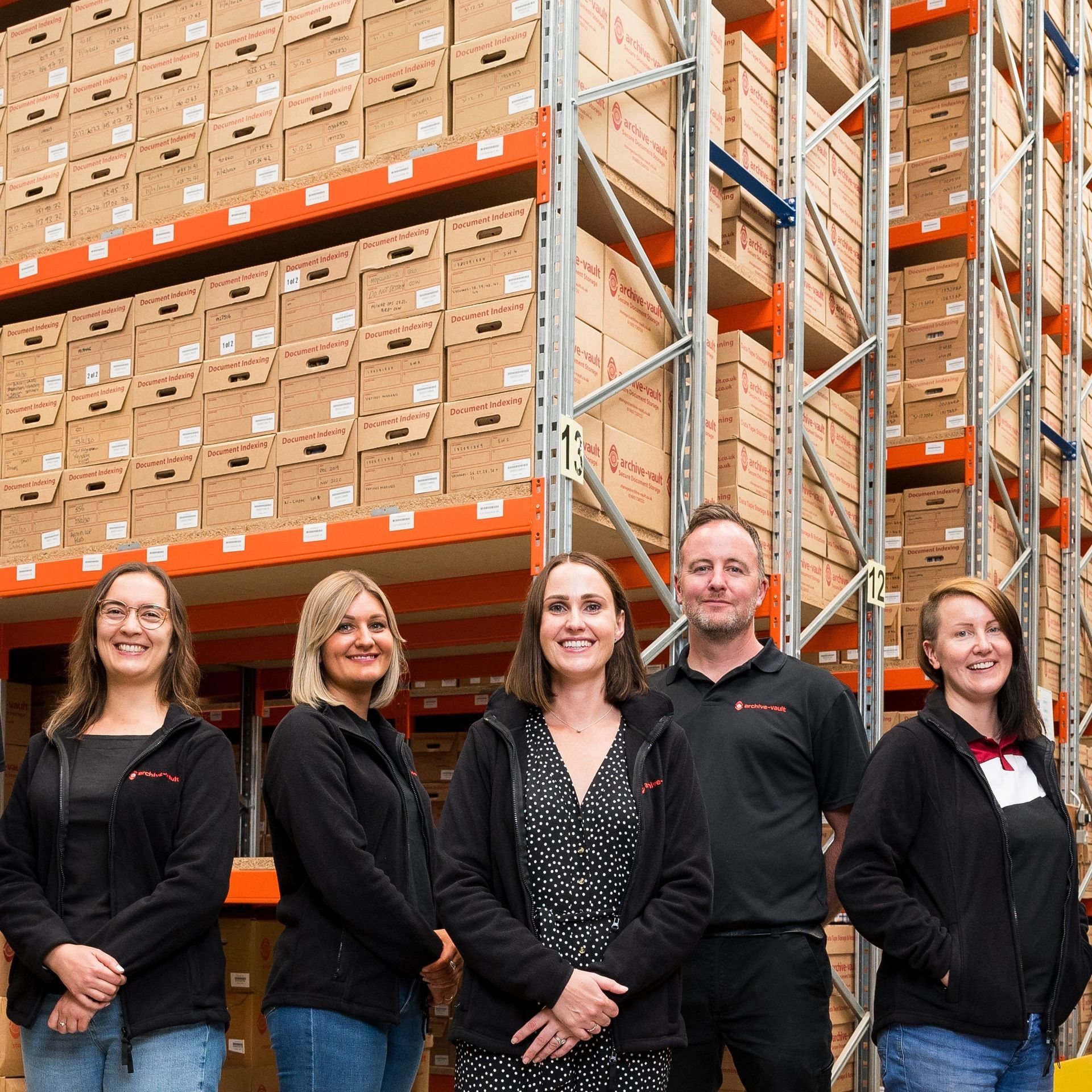
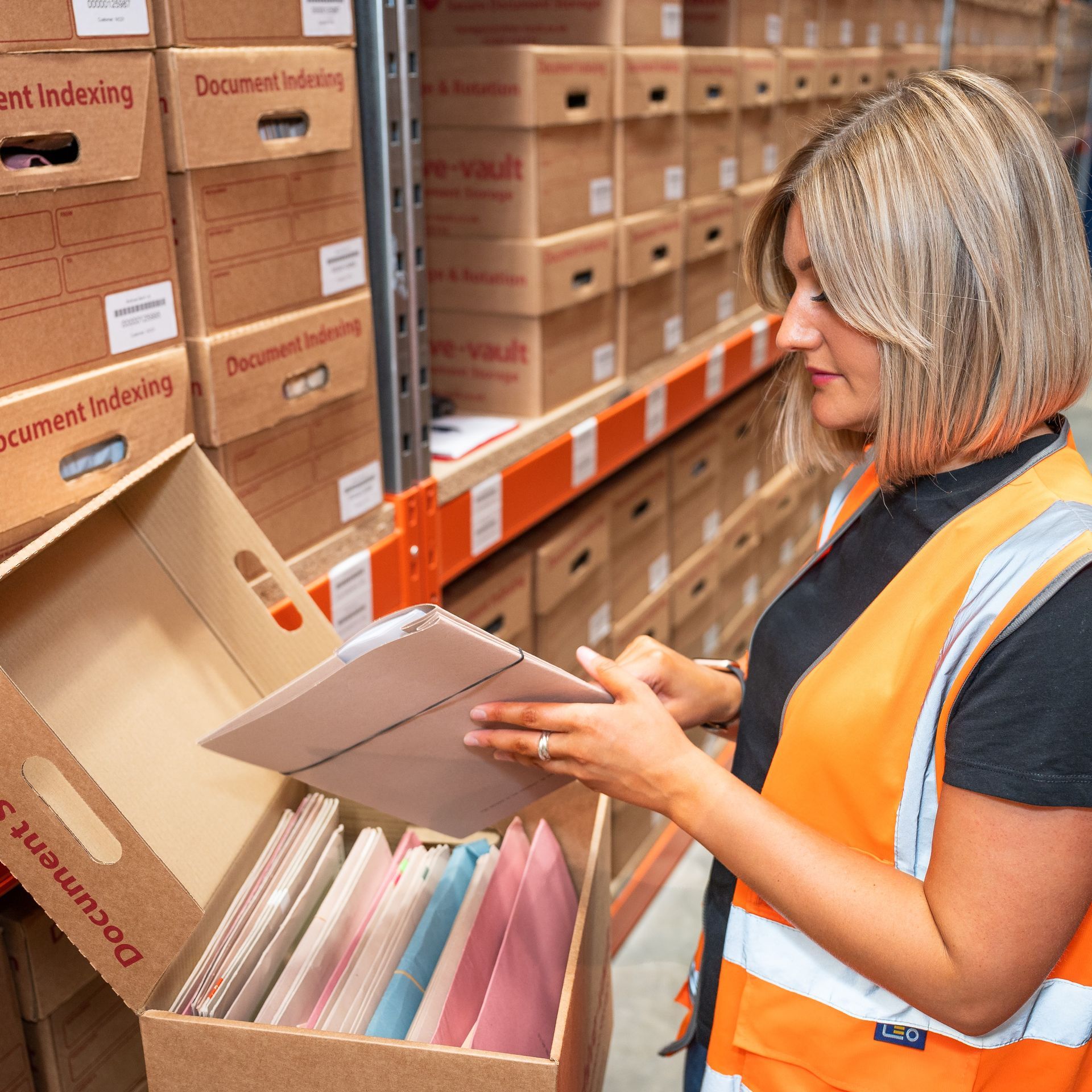
Archive-Vault Ltd
Cooper House, Wendover Road, Rackheath,
Norwich, NR13 6LH
CONTACT US
Sign Up To Our Newsletter
We will get back to you as soon as possible.
Please try again later.
SITE NAVIGATION


